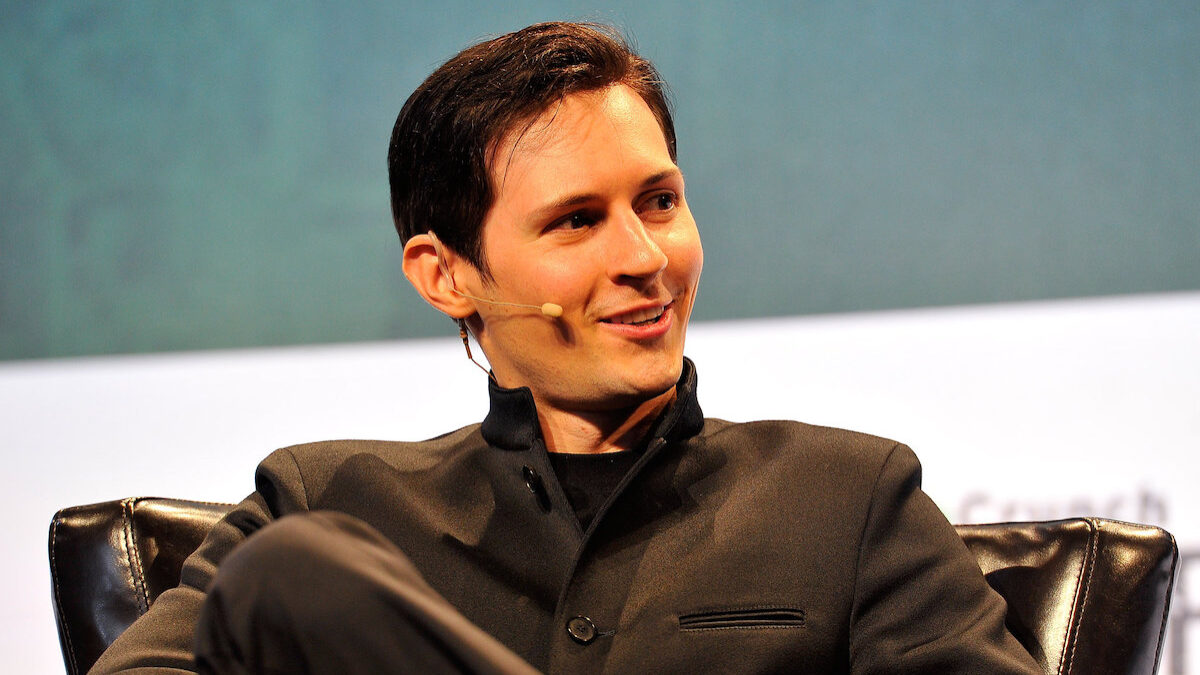
So are you ready to set aside “Fifty Shades of Grey” and talk about the normalization of sexual relations between humans and animals? Seriously, in November New York Magazine ran an exhaustive interview with a 42-year-old man from Canada who described in graphic detail his love affairs with horses. (Oh, by the way, he says he’s “lucky” to have his human wife because that way “nobody would ever guess.”) He argues that bestiality—or, in politically correct parlance, “zoophilia”—should be legal and socially de-stigmatized. Meanwhile, in Germany, Oliver Burdinski has been out and proud with his lover, a Siberian husky named Joey, but he’s faced the possibility of being separated from Joey since Germany outlawed bestiality last year.
“Oh, the humanity!” But never fear, because the activists of the bestiality rights group ZETA—Zoophile Engagement for Tolerance and Enlightenment—is on the case.
“Zoos,” as they call themselves, feel misunderstood, and they’re starting to come out of the closet. In fact, it’s the last of a long line up of sexual taboos that are being challenged today. Which brings us to the question: What is the difference between “slippery slope” and “liberation gateway drug?” Not much, if you’re following sexual trends these days.
Daily Beast author Jay Michaelson recently vindicated the old slippery slope argument by stating: “I do like the idea of same sex marriage as a liberation gateway drug.” His prediction was that same-sex marriage is likely to result in the “Christian right’s nightmare,” in which society sees the spreading of new “sexual possibilities” and practices. Gay marriage will very likely transform marriage, Michaelson asserts, and non-monogamy could very well be one of the things gays “teach” straights. In other words, a funny thing has happened on the way to complete legalization: advocates are now saying (taunting?) that gay marriage may have exactly the effect the opposition has warned against. Perhaps it’ll be, as the Daily Beast’s teaser affectionately put it, “a Bible thumper’s idea of Sodom and Gommorah.”
Okay, so why not give that last premise some real consideration? Michaelson’s piece, basically on cause and effect, is an open invitation to speculate not just on the future of monogamy, but on the future of all “sexual possibility,” just as the Christian Right warned. Here’s a tweet (image warning) reaction to his piece that celebrates the Pandora’s Box theory.
Let’s Play Some More ‘What If?’
What if all of our sexual taboos were legalized in the interests of tolerance and freedom? Or what if normalization of all taboos was simply allowed to “evolve” in the wake of ever-more calls for ever more tolerance?
As we careen down this already well-greased slope, you may recall tales about the excesses in the fall of Rome. You may have also heard accounts of the “vomitorium,” at which partakers could never get enough of the banquet. According to these yarns, the gluttonous Romans would take time outs in a room where they’d upchuck their barely-digested delicacies. Then they’d go back to gorge some more. In like manner, the modest among us can barely imagine how sexual gluttons—like Roman bacchanals—might hasten also to a place in which they cast off one sexual novelty or scenario to try on another. And another and another in rapid succession.
The vomitorium stories, even if apocryphal, tell us something of human nature and uncontrolled appetites. Lack of self-regulation can lead to addictive behaviors and the elusive quest for ever-higher highs. In the end, it doesn’t matter how few or how many join in. It doesn’t even matter if a newly legalized behavior is limited to a small sub-culture in society. Once legalized, any and all contents poured into the trough of sexual practices will affect and, sooner or later, transform the mores of the whole society.
Such is the life of porn and drug habits alike. Brain circuitry rewires, and certain obsessive appetites go into hyperdrive. As more sexual taboos are openly challenged, our society offers more all-you-can-eat sexual buffets. For some, this gives the illusion of a state of ecstasy between visits to the vomitorium. For others, it induces a dizzying state of nausea.
But whether you’re puking (voluntarily or otherwise)—or maybe you haven’t even noticed what’s on the smorgasbord just yet?—we should all understand up front where the collapse of more taboos would likely take us.
The Sexual ‘Liberation Gateway Drug’
For starters, same-sex marriage seems to be mutating into hostility towards the very idea of monogamous marriage. Chances are Michaelson would never have called same-sex marriage a “liberation gateway drug” if the agenda didn’t yet seem pretty much a done deal. The title of his article—“Were Christians Right about Gay Marriage all Along?”—should deeply chagrin those who lent their support only because they were convinced it was all about state-sanctioned, monogamous marriage for gays.
Michaelson’s central question is: “What if gay marriage really will change the institution of marriage, shifting conceptions around monogamy and intimacy?” And there you have it: the bait and the switch of same-sex marriage.
First, the Bait
The illusion of support for same-sex marriage—extracted through emotional blackmail and the social extortion we know as political correctness—was based on the idea of “marriage equality.” It was deceptively packaged and still clings to the civil-rights movement like a parasite on its host.
You know the story. It continues to play out as owners of small wedding businesses are hectored, sued, and forced to close shop when religious conscience on the definition of marriage forbids their compliance. It continues to play out as folks like former Mozilla CEO Brendan Eich are forced to step down when their view is discovered and publicly exposed as a thought crime. It continues to play out with political rewards for those who switch sides and severe punishments for those who can’t or won’t.
Coming Up: the Switch
I believe the ultimate switch will be the complete abolition of state recognition of all marriage and family relationships, which I wrote about in April. Throughout the PR campaign for same-sex marriage, the public was baited with the presumption that genderless marriage was merely meant to expand marriage as a monogamous institution. This presumption was carefully coddled by the LGBT lobby in its media hype.
Not so much anymore. Michaelson confesses: “there is some truth to the conservative claim that gay marriage is changing, not just expanding, marriage. According to a 2013 study, about half of gay marriages surveyed were not strictly monogamous. This fact is well-known in the gay community—indeed, we assume it’s more like three-quarters.” [emphasis added]
Anyhow, Michaelson seems delight in taking off his mask—or the mask of the LGBT lobby—on this point:
But it’s been fascinating to see how my straight friends react to it. Some feel they’ve been duped: They were fighting for marriage equality, not marriage redefinition. . . . But radical traditionalists aren’t the only ones fearing the consequences of same-sex marriage. So, it may surprise you to learn, are radical progressives. ‘Marriage will never set us free,’ wrote academics Dean Spade and Craig Wilse last September, just as the current wave was getting going . . . Why? Because marriage is a patriarchal, sexist institution that should be discarded rather than reformed.
Indeed, the switch will come when your marriage—“radical traditionalist” or otherwise—is abolished and the state completely isolates you, no longer recognizing family autonomy.
Michaelson’s rejection of monogamy was echoed in a recent Buzzfeed piece about gay sex in which activist David Tuller stated: “I’ve heard straight people say that they’ve come to support same-sex marriage because they know loving, monogamous gay couples . . . I think that’s a widespread assumption among heterosexual people — that men in same-sex marriages will adopt monogamy as a lifestyle value. And I think that’s probably a very questionable assumption.”
So the transition between the bait and the switch on marriage definitely looks like it’ll be an era of sexual license that challenges monogamy. Of course, the signatories of the 2006 Manifesto “Beyond Same Sex Marriage”—many of them prominent academics and celebrities—already confessed to this years ago.
So Here We Are . . . and Awaaay We Go!
The end of monogamy is only the first course in the sexual buffet post-genderless marriage. As Michaelson concedes, the opponents of same-sex marriage who warned that it would open a Pandora’s Box normalizing non-monogamy were likely right after all. So were they just as correct about other sexual taboos that might further break down family and society cohesion if society expands notions of sexual intimacy in the wake of “marriage equality?”
Even though homosexuality is now more widely accepted than could possibly have been imagined just 15 years ago, most Americans still cringe at and stigmatize other sexual practices, including polyamory, incest, group sex, pedophilia, sado-masochism, and the delicate matter of oh-c’mon-that-could-never-happen bestiality—to name just a few leftover taboos. But how long can such stigmas hold up in an era of PC fascism that thrives on making the implausible seem plausible to the public?
So what could be next, beyond same-sex marriage? Michaelson focuses pretty much on the end of monogamy in his piece. But he concedes it’s all a big question mark where this all will take us, sexually speaking:
So, if I had to predict, I’d go with a gradual realization of the conservative nightmare—only it won’t be a nightmare, and plenty of straight people will thank us for it. . . . same-sex marriage was really a campaign, not a movement. For a moment, it brought together liberals, progressives, and even some conservatives. But now that its goal is within sight, the center cannot hold. And then, things get interesting.
Exactly how interesting? Let us count at least ten ways.
A Taboo on Taboos?
Over just the past couple of years, proponents of heretofore stigmatized sexual activities seem to be pushing ever edgier sexual practices into the mainstream. We should pay attention to all of this for two reasons. First, because the Internet has a long reach, sowing ideas far and wide. Second, because the fringy side of yesterday has a funny way of suddenly showing up as mainstream on a Time Magazine cover near you today.
Consider the following:
It seems mostly about mechanical sex. In the recent Buzzfeed article so cleverly titled “How We F*ck Now,” celebrated gay men gather round to pontificate about the standard of non-monogamy for gays, same-sex marriage, and what the future holds for higher highs, including speculation about how a daily dose of a drug like Truvada which can be used to prevent AIDS sometimes, may “revolutionize” gay sex by making condoms unnecessary.
Group Marriage. The push for legalizing polygamy, which the LGBT lobby claimed for years was a red herring, is naturally happening now for real with sympathetic portrayals in mainstream publications like the Atlantic Monthly and Redbook. Polygamy advocates cheered on the sidelines when the Supreme Court overturned the Defense of Marriage Act in June last year.
Group Sex. The growing drumbeat to normalize group sex, dubbed—for the time being—as one form of “polyamory” is getting lots of mainstream attention. Its practitioners will tell you it’s all about “open relationships” and “big love.”
Sexualization of Children. Kids are sexually active at ever-younger ages, spurred on by the behavior and messaging of the culture and adults around them. The clear message of sex education curricula today, promoted by SIECUS, is that abstinence is a socially unacceptable mode of behavior for youth.
Transgender Children. This represents a virtual neutering. The transgender movement is pushing itself harder than ever on children, especially with a recent article in Slate claiming that infants should not even be identified at birth as boy or girl. The idea is that parents ought to shut up and keep gender identity ambiguous, having pre-school children like Ryland Whittington (nudged by the trans agenda) transitioned to the opposite sex.
BDSM. It’s not just intended for consenting “adults” anymore, as “Fifty Shades of Grey” might suggest. Planned Parenthood has lent its imprimatur to promotion of BDSM—or Bondage/Domination/Sado-Masochism—for teenagers, rationalizing that it’s a nice way to relate because it means you have to “trust” the partner. A Planned Parenthood counselor was also recently caught on tape advising a 15-year-old girl on BDSM and going to sex shops to buy whips and paraphernalia to use for it.
Pedophila. Academic articles from gender and queer theory are pushing the envelope and cultivating the ground for social acceptance of pedophilia. The British are debating about classifying it as another “sexual orientation.” Lowering the age of consent is high on the agenda, under cover of “liberating” the sexuality of the child.
Anonymous Sex. Aside from one-night-stands and prostitution and bathhouses, some advocates of sex with strangers are aspiring to higher forms of respectability, even with a religious air. Consider a recent phenomenon in the guise of something dubbed “orgasmic meditation,” or OM (as in the Buddhist mantra). This is a twofer since it’s paid sex, so serves also as a thin veil for prostitution. It started in San Francisco and is now coming to New York via Boulder.
Incest. Some mainstream media reporting on incest cases, particularly the grandmother-grandson romance and pregnancy, can seem sympathetic, and have a desensitizing effect on incest as a taboo. “Incest Is Hot,” according to MTV plans for upcoming shows.
Celebrating Porn. Many colleges have been hosting popular porn-sponsored events called “Sex Week” for a while now. (Apparently they don’t think mechanical and anonymous sex is happening enough in those places.) Torture Porn gets positive coverage in a Salon article written by a fan of it. It seems to be growing in popularity. Federalist author Brandon McGinley speculates “We May Be Approaching Peak Porn.”
“Twincest” has become popular pornography among gay men. This American Thinker article explains what’s going on with mainstream gay magazines celebrating and interviewing sets of identical twins from the Czech Republic and Brazil who sodomize for the camera. The fad is being cultivated with articles that serve to desensitize and explain to readers why they’ve “gotten over twincest and started thinking it’s hot.”
Inter-Species Sex. The 2005 book by Andrea Beetz, “Bestiality and Zoophilia: Sexual Relations with Animals,” describes a “very delicate subject, one of the last taboos,” and suggests it is a sexual orientation. Normalization of bestiality apparently begins—as with every sex act ever rationalized—with the tiresome explanation that it has always existed and has actually been considered “common” and “healthy” in other eras and places.
Animal Brothels. There have been reports of animal brothels doing brisk business in countries such as Germany (which just recently outlawed bestiality) and Denmark, where they are considered legal and the activity itself is merely a “lifestyle choice.”
The above is a short list. But step back and you can see a picture emerging that’s not of a community of individuals living in harmony and freedom, but more of an addicted collective, slurping at a trough of displaced cravings. It seems as though our souls have become so separated from our bodies and our minds so unfastened from reality—and separated from one another—that we look like The Lonely Crowd on steroids.
Funny Things Happen on the Way
These trends, if allowed to continue, can’t help but erode the private sphere into nothingness. If we don’t regulate ourselves—and our laws don’t support self-regulation—a funny thing is likely to happen on the way to the vomitorium: the “Pink Police State” will step in and regulate us for ourselves. And in the end, it doesn’t really matter if only a few people in a subculture practice these things. With the legalization and de-stigmatization of things like polygamy or incest or other sexual taboos, the outcome is always hard cases that create excuses for making ever more bad laws to rule over us.
For power elites so inclined, promoting the illusion of freedom helps to mobilize and control the masses. In this scenario, sober habits like abstinence and thrift have a way of becoming the new and subversive taboos, frowned upon by the elites.
In truly free societies, taboos help people self-regulate, and keep their behaviors in check. Reasonable taboos that encourage self-control and respect for human dignity actually balance our freedom and thus help to secure it. They have an anchoring effect that stabilizes ourselves and our society. On the other hand, utter ambiguity in sexual mores removes boundaries and tends to promote the kind of alienation that weakens trust. Indeed, distrust for others—which the General Social Survey indicates has surged in the past 40 years—weakens personal relationships and certainly weakens a sense of true community.
At the moment, we seem to have lost our bearings. It feels like we’re in a free fall with a rickety parachute. An inevitable splat moment looms, though it hasn’t quite registered for most of us.
We should be working to stop this insanity in its tracks and not be silent about it, no matter how much the PC crowd blathers and smears us for pointing out the obvious. As we take in the landscape, we ought to be feeling pretty nauseous about now. Sick as a dog, in fact.
Follow Stella on Twitter. She blogs about relationships, power, and freedom at www.stellamorabito.net.









